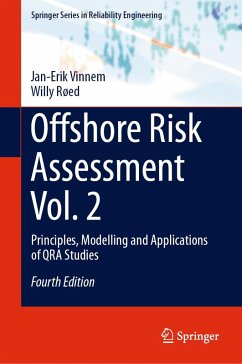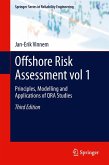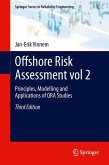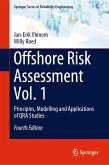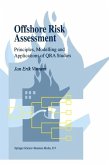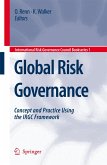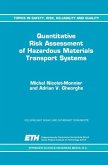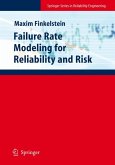This is the first textbook to address quantified risk assessment (QRA) as specifically applied to offshore installations and operations. As the second part of the two-volume updated and expanded fourth edition, it adds a new focus on the recent development of Normally Unattended Installations (NUIs), which are essentially autonomous installations that combine digitalization, big data, drones and machine learning, and can be supported by W2W (walk-to-work) vessels. These minimalistic installations with no helideck and very limited safety systems will require a new approach to risk assessment and emergency planning, especially during manned periods involving W2W vessels.
Separate chapters analyse the main hazards for offshore structures: fire, explosion, collision, and falling objects, as well as structural and marine hazards. The book explores possible simplifications of risk assessment for traditional manned installations. Risk mitigation and control are also discussed, aswell as how the results of quantitative risk assessment studies should be presented. In closing, the book provides an updated approach to environmental risk assessment.
The book offers a comprehensive reference guide for academics and students of marine/offshore risk assessment and management. It will also be of interest to professionals in the industry, as well as contractors, suppliers, consultants and regulatory authorities.
Separate chapters analyse the main hazards for offshore structures: fire, explosion, collision, and falling objects, as well as structural and marine hazards. The book explores possible simplifications of risk assessment for traditional manned installations. Risk mitigation and control are also discussed, aswell as how the results of quantitative risk assessment studies should be presented. In closing, the book provides an updated approach to environmental risk assessment.
The book offers a comprehensive reference guide for academics and students of marine/offshore risk assessment and management. It will also be of interest to professionals in the industry, as well as contractors, suppliers, consultants and regulatory authorities.
Dieser Download kann aus rechtlichen Gründen nur mit Rechnungsadresse in A, B, BG, CY, CZ, D, DK, EW, E, FIN, F, GR, HR, H, IRL, I, LT, L, LR, M, NL, PL, P, R, S, SLO, SK ausgeliefert werden.

